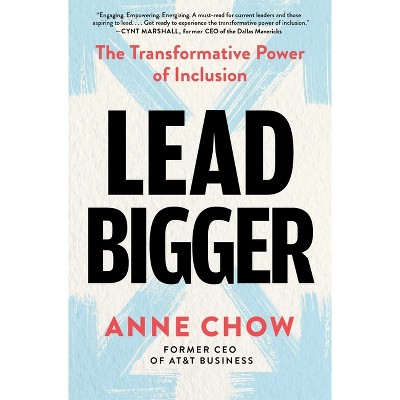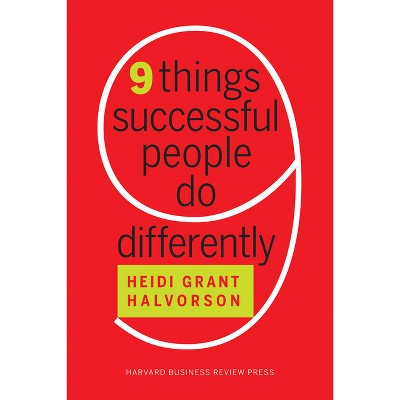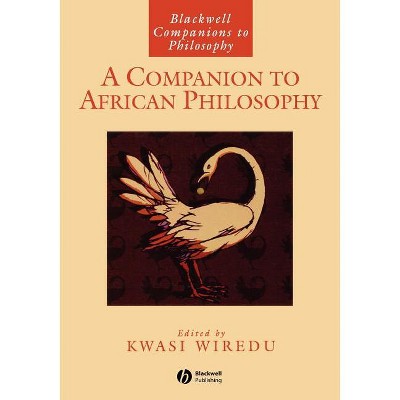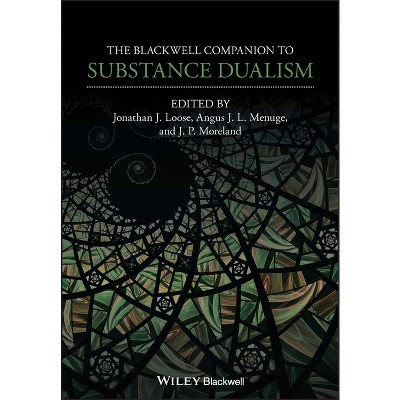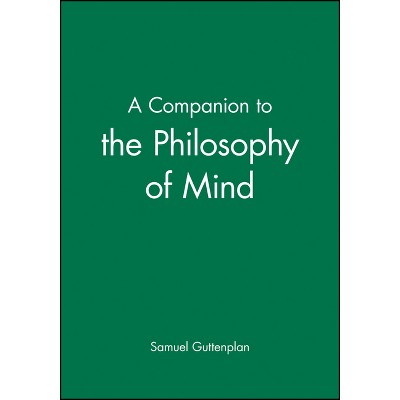Sponsored

A Companion to Digital Ethics - (Blackwell Companions to Philosophy) by Luciano Floridi & Mariarosaria Taddeo (Hardcover)
In Stock
Sponsored
About this item
Highlights
- A compilation of cutting-edge, comprehensive insights into digital ethics from leading scholars As digital technologies shape every aspect of today's society, ethical considerations have never been more pressing.
- About the Author: LUCIANO FLORIDI is the John K. Castle Professor in the Practice of Cognitive Science and the Founding Director of the Digital Ethics Center, Yale University.
- 352 Pages
- Philosophy, Ethics & Moral Philosophy
- Series Name: Blackwell Companions to Philosophy
Description
About the Book
"In this chapter, we describe digital ethics as the branch of ethics that studies and evaluates moral problems related to data (including generation, recording, curation, processing, dissemination, sharing, and use), algorithms (including AI, artificial agents, machine learning, and robots), hardware and infrastructures, and corresponding practices (including responsible innovation, programming, hacking, and professional codes), in order to formulate and support morally good solutions (e.g. right conducts or right values). We show that digital ethics is best developed as a translational macroethics, that is, as an overall framework that avoids narrow approaches and addresses the ethical impact of digital technologies within a consistent, holistic, and inclusive framework. Its goal is to provide solutions that can maximise the value of digital technologies for all of us, our societies, and the environment"-- Provided by publisher.Book Synopsis
A compilation of cutting-edge, comprehensive insights into digital ethics from leading scholars
As digital technologies shape every aspect of today's society, ethical considerations have never been more pressing. In A Companion to Digital Ethics, editors Luciano Floridi and Mariarosaria Taddeo bring together leading experts to analyse key ethical challenges posed by artificial intelligence, privacy, cybersecurity, cyberwarfare, sustainability, digital consent, and many other topics. With a multidisciplinary approach, this authoritative volume introduces all the relevant topics in digital ethics clearly and accessibly, integrating insights from philosophy, law, computer science, and the social sciences.
Unlike other collections that focus on specialised research or introductory overviews, this Companion strikes a critical balance--offering a systematic, comprehensive, simple yet rigorous examination of digital ethics that is both conceptually rich and practically relevant. Each chapter can be read as part of the whole or independently. Throughout the book, the contributing authors equip the reader with diverse perspectives for navigating ethical dilemmas in the evolving digital landscape, with an essential list of references and further readings.
Integrating real-world examples and case studies throughout, A Companion to Digital Ethics:
- Explores the ethical value and implications of digital technologies and their applications
- Offers clear and precise analysis of both current and potential ethical challenges
- Includes discussions of ethical issues in contexts of technology governance and digital law
- Helps professionals and policymakers implement ethical principles in AI and digital technologies
- Contains authoritative and cutting-edge chapters, edited by two leading experts in digital ethics
Whether used in academic courses or professional discussions on responsible digital innovation, A Companion to Digital Ethics is an essential guide to understanding and addressing the ethical questions of the digital age. It is a must-have resource for undergraduate and postgraduate students in any academic discipline, as well as policymakers and practitioners seeking to implement ethical frameworks for emerging technologies.
From the Back Cover
As digital technologies transform society, the ethical questions they raise become more urgent and complex. Designed for use in both academic courses and professional settings, A Companion to Digital Ethics gathers leading scholars to examine critical issues such as AI governance, privacy, cybersecurity, digital sustainability, and cyberwarfare. This comprehensive, yet accessible, volume provides a clear analysis of the ethical dilemmas shaping our digital future, helping readers understand and astutely engage with the key debates in the field.
Offering both conceptual depth and practical insights, the Companion integrates perspectives from philosophy, law, computer science, and the social sciences. Each chapter reconstructs and clarifies ongoing academic discussions, whilst providing cutting-edge real-world examples that illustrate the ethical implications of digital technologies. Unlike highly specialised research collections or broad introductory overviews, this volume strikes the perfect balance by making complex topics understandable without oversimplification.
Ideal for undergraduate and postgraduate students studying applied ethics, digital governance, and technology policy, A Companion to Digital Ethics is also an essential resource for researchers, policymakers, and industry professionals working to develop responsible and ethical digital practices.
About the Author
LUCIANO FLORIDI is the John K. Castle Professor in the Practice of Cognitive Science and the Founding Director of the Digital Ethics Center, Yale University. One of the most authoritative voices of contemporary philosophy, he is the founder of the philosophy of information, and one of the major interpreters of the digital revolution. His recent books include The Ethics of Artificial Intelligence and The Green and The Blue - Naive Ideas to Improve Politics in the Digital Age. Among his many awards, in 2022 he was made Knight of the Grand Cross OMRI for his foundational work in philosophy.
MARIAROSARIA TADDEO is Professor of Digital Ethics and Defence Technologies at the Oxford Internet Institute of the University of Oxford. Her work focuses on the ethics and governance of digital technologies, particularly of digital technologies used for national security and defence purposes. Her work has been published in Nature, Nature Machine Intelligence, Science, and Science Robotics. She is the author of The Ethics of Artificial Intelligence in Defence. She serves on the Ethics Advisory Panel of the UK Ministry of Defence and as editor-in-chief of Minds and Machines.
Shipping details
Return details
Frequently bought together
Trending Philosophy






